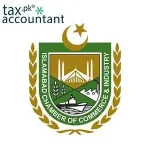Receiving a notification from the tax authorities can be a stressful experience, especially if you’re unsure what it means. If you’ve been sent a notice under Section 114(4) of the Income Tax Ordinance, 2001, it’s crucial to understand its purpose and take appropriate action. Serious repercussions, including as fines and legal action, may result from ignoring it.
What is a Notice under Section 114(4)?
The tax department (FBR in Pakistan, for example) formally notifies you under Section 114(4) that you must file your income tax return for a particular tax year or years. Anyone who the Commissioner feels should file a return but hasn’t has the authority to get this notice.
Usually, this warning is provided to people who:
The most frequent explanation is that they have not submitted their tax return by the due date.
- Are on the “non-filer” list. You may be a potential taxpayer who has not yet been included to the Active Taxpayer List (ATL) by the tax department.
- Have submitted a manual return before. Due to system irregularities, notices are occasionally sent for prior years even when a manual return was submitted.
- Have been selected for a compliance check. The tax authority may be cross-checking your financial actions against other data sources.
- Are new taxpayers. Notices for prior years are sometimes routinely sent to new taxpayers, even if they were not obliged to file a return in those years.
What to Do When You Receive a Section 114(4) Notice
Do not panic and do not disregard it is the most crucial rule. Here’s a step-by-step tutorial on how to deal with a Section 114(4) notice:
- Read the Notice Carefully: The notice will outline the tax year or years for which you must file a return as well as the compliance date. Note down the dates and the precise needs.
- Compile Your Records: Gather all required financial records for the tax year or years specified in the notification. This includes: * Salary slips * Bank statements * Utility bills (electricity, gas, phone) * Property ownership documents * Vehicle registration details * Any other evidence of income or assets
- Check Your Taxpayer Status: Verify your status on the official tax portal (e.g., IRIS site in Pakistan). Verify if your National Tax Number (NTN) is operational and see if your tax returns for the pertinent years are already on file. In some situations, a notice could be given in error, especially if you have already submitted.
- If the return hasn’t been filed already, file it now: You must file as soon as feasible if you haven’t already for the designated year. The procedure entails: * Accessing the tax portal.
- Selecting the correct tax year.
- Filing your Income Tax Return and Wealth Statement. * Ensuring all information are precise and reconciled.
- If necessary, request an extension: The concerned officer can grant you an extension if the deadline is too short to collect all of your information. It is advised that you submit a formal, written request outlining your circumstances.
How Professional Services Can Help
It can be difficult to handle a tax notice, and even one error might cause more issues. Professional tax services become extremely beneficial in this situation. We can help you in the following ways:
- Expert Analysis of the notification: To determine the precise requirements and the best course of action, we will carefully examine your notification. We can determine whether the notice was sent in error and offer advice on how to respond.
- Accurate Return Filing: Our professionals will assist you in accurately and promptly preparing and filing your wealth statement and income tax return. We ensure all legal criteria are met to avoid future discrepancies.
- Management of Penalties and Compliance: We can guide you through the possible fines and penalties related to late filing. Our objective is to guarantee that you attain compliance with the least amount of financial effect possible.
- Representation and Communication: We can function as your representative, handling all communication and correspondence with the tax department on your behalf. This saves you time and stress, providing a competent and prompt answer.
- Proactive Tax Planning: Beyond just responding to the notice, we can help you with proactive tax planning to guarantee you remain compliant in the future and avoid similar notices.
A tax notice shouldn’t be a cause of anxiety. Contact us immediately for a consultation and let our professionals help you through the process, assuring a flawless and compliance resolution.








